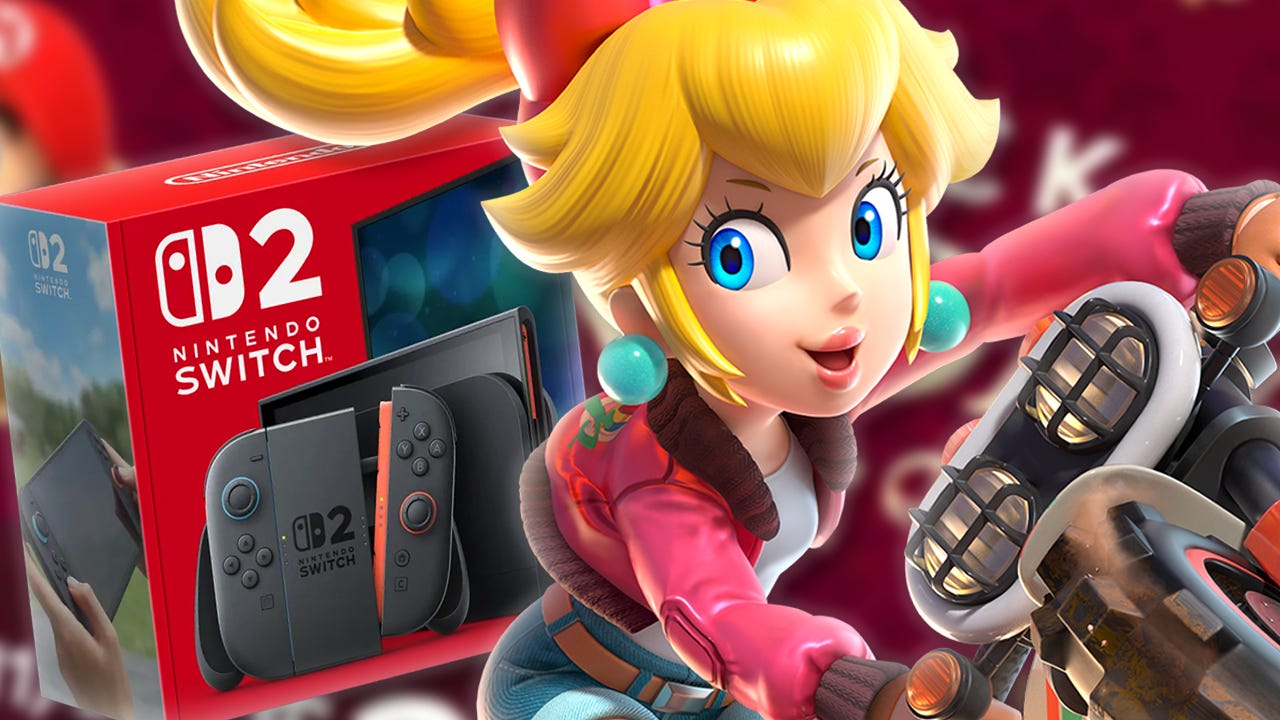The Price of Convenience is Everything
So, the trumpets have sounded and the corporate banners are unfurled. Nintendo’s 2025 Black Friday and Cyber Deals are “officially live,” a phrase delivered with the kind of breathless excitement usually reserved for genuine cultural events, not a meticulously planned digital fire sale designed to Hoover the last remaining dollars from your wallet before the year closes out. They promise savings, glorious savings, up to 50% off on “select games.” It all sounds so generous, doesn’t it? A benevolent gesture from the gaming giant to its loyal fans. A little holiday cheer. What a joke. This isn’t a celebration; it’s a conditioning exercise. Every single one of these deeply discounted digital downloads, snatched up in a frenzy of manufactured urgency that ends precisely on December 3rd, is another brick in the wall of the prison they’re building for us. A comfortable, colorful, endlessly entertaining prison, to be sure, but a prison nonetheless. They aren’t selling you a game; they are selling you a license, a temporary key to a file that lives on their servers, a key they can (and eventually will) revoke the second it becomes inconvenient or unprofitable for them to maintain it.
The very language they use is a masterclass in psychological manipulation. “Hurry, though—this sale ends,” they warn, tapping directly into your FOMO, that primal fear of missing out on a bargain. It’s a cheap tactic, the digital equivalent of a high-pressure salesman telling you another couple is looking at the same car. And look closer at the source material, the little slips of the tongue from the marketing machine. They mention the “Nintendo Switch 2,” the next glorious piece of hardware that will render your current expensive brick obsolete. This isn’t an accident. It’s a calculated leak, a breadcrumb dropped to ensure you understand the treadmill you’re on. Buy these digital games for your current Switch now, but know that the clock is ticking. You’ll need the new machine soon, and will you be able to bring your entire digital library with you? The answer is always, and will always be, “maybe.” It depends entirely on their whim, on their quarterly projections, on whether they can find a new way to charge you for the very same content you thought you already bought. This isn’t about gaming. It’s about establishing a system of digital serfdom where you are perpetually paying rent for culture you used to own.
The Illusion of a Library
Let’s talk about what you’re actually buying. When you hand over your money for a physical game cartridge, you are participating in a transaction that has existed for centuries. You exchange currency for a tangible good. That good is yours. You can play it, display it on a shelf, lend it to a friend, sell it to a stranger when you’re done with it, or keep it for twenty years and pass it down to your children. It has inherent value because it is a physical artifact. When you click “purchase” on the Nintendo eShop, you are doing none of these things. You are paying for a long, complicated End User License Agreement (that nobody reads) which explicitly states you own nothing. Nothing. You own a fragile, revocable permission slip to access data. Your “library” is just a list of permissions tied to your account, an account that can be banned or suspended, wiping out your entire collection in a heartbeat with no recourse.
Think about the sheer audacity of it. Corporations like Nintendo have successfully convinced an entire generation that this ephemeral, conditional access is not only equivalent to ownership but is actually superior because it’s “convenient.” You don’t have to get up to change a cartridge! Wow. What a revolutionary benefit in exchange for surrendering every last one of your consumer rights. These Cyber Deals are the accelerant on that fire. The 50% discount isn’t a discount on a product; it’s a subsidy for their preferred method of distribution. They lose a little margin now to ensure they have total, unassailable control over the market later. They are paying you, in the form of a discount, to help them kill the secondhand market, to eliminate physical retail, and to lock you into their closed ecosystem so that you have no choice but to buy the next console, and the next, and the next. It’s the most brilliant, and insidious, business model ever devised. And we’re all just lining up, year after year, during these manufactured sales events, to gleefully participate in our own financial and cultural disenfranchisement. We’re rushing to buy the chains because they’re half off. What a deal.
The Data Farm and The Walled Garden
Every time you browse the eShop, every game you click on, every second you spend hovering over a title before deciding against it—it’s all being logged. This sale isn’t just about moving digital units; it’s one of the largest data-harvesting operations of the year. Nintendo is learning your habits with terrifying precision. They know what art styles you prefer, what genres you gravitate towards, and exactly what price point is your psychological tipping point for an impulse buy (for many, it appears to be 50% off). This data is the real gold. It allows them to fine-tune their future offerings, not necessarily to create better art, but to create more effective products, more addictive feedback loops, and more perfectly targeted sales to extract the maximum possible revenue from you over your lifetime as a consumer. You are not the customer here; you are the resource being mined. The games are just the brightly colored lures they use to get you to surrender your data and your dollars.
This entire process feeds into the construction of the perfect walled garden. Apple pioneered it with the App Store, but gaming companies have refined it into an art form. The eShop is a space where Nintendo is the landlord, the gatekeeper, and the law. They decide which games get listed, what percentage they take from developers (a massive cut, by the way), and how you are allowed to interact with the software you supposedly “bought.” There is no competition. There is no alternative. If you want to play their games on their hardware, you play by their rules. The slow death of physical media, which these digital sales are designed to hasten, is the final step in sealing the gates for good. Once physical games are a niche, collector-only pursuit, the trap is sprung. Prices will no longer need to be competitive with a physical secondhand market. Sales will become less generous. The control will be absolute. They will have a captive audience, and a captive audience can be squeezed indefinitely.
The Coming Obsolescence Cascade
The mention of the “Switch 2” in the middle of a sale for the original Switch is the most dystopian part of this whole affair. It’s a quiet threat. A reminder. Enjoy your cheap digital games for this console, because its days are numbered. The planned obsolescence cycle in technology is vicious, and in the world of digital-only media, it’s a catastrophe for consumers. When Nintendo decides to shut down the eShop servers for the original Wii, you lost access to your WiiWare games. When they shuttered it for the 3DS and Wii U, billions of dollars in consumer purchases effectively evaporated into the ether. It’s not a matter of if they will do this for the Switch; it’s a matter of when. And what happens to your precious library of 50%-off digital deals then? It’s gone. Dust. A line item on a credit card statement from 2025.
This is the endgame. A future where you don’t have a shelf of beloved games that represent years of memories. You have a subscription fee and a transaction history. A future where a company’s server maintenance budget dictates the preservation of entire generations of art. We are trading the permanence of culture for the fleeting convenience of a download. This Black Friday sale is a symptom of the disease, a mass hypnosis event where we are encouraged to celebrate spending money on things we will never, ever truly own. They dangle the keys in front of our faces, shiny and new and half-priced. They just don’t tell us they can change the locks whenever they feel like it.
Your Role in The Machine
It’s easy to feel powerless, to simply shrug and say this is the way the world works now. But that’s precisely the mindset they are counting on. Apathy is the lubricant for this entire machine. Every digital game purchased during this “sale” is a vote. It’s a vote for the death of ownership, a vote for corporate control, and a vote for a future where your access to culture is entirely at the mercy of a distant, unaccountable board of directors. You are actively paying them to take your rights away. Let that sink in for a moment. The few dollars you save on a digital title is a down payment on a future where you have no control, no ownership, and no say. It’s a pittance in exchange for your freedom as a consumer.
So when you see that banner proclaiming “Cyber Deals! Save up to 50%!” don’t see a gift. See it for what it is: a lure. A beautifully crafted, highly effective piece of bait designed to pull you deeper into the ecosystem, to make you more dependent, and to normalize the slow, steady erosion of your rights. They are betting that the dopamine hit of a perceived bargain is more powerful than your desire for actual ownership. And for the last decade, they’ve been right. Dead right. The question is, how long will we continue to prove them correct? How long will we line up to buy digital ghosts, celebrating the very mechanism that will eventually consume all media, leaving us with nothing but a subscription fee and a faint memory of a time when we actually owned the things we paid for? This isn’t a sale. It’s a surrender.


